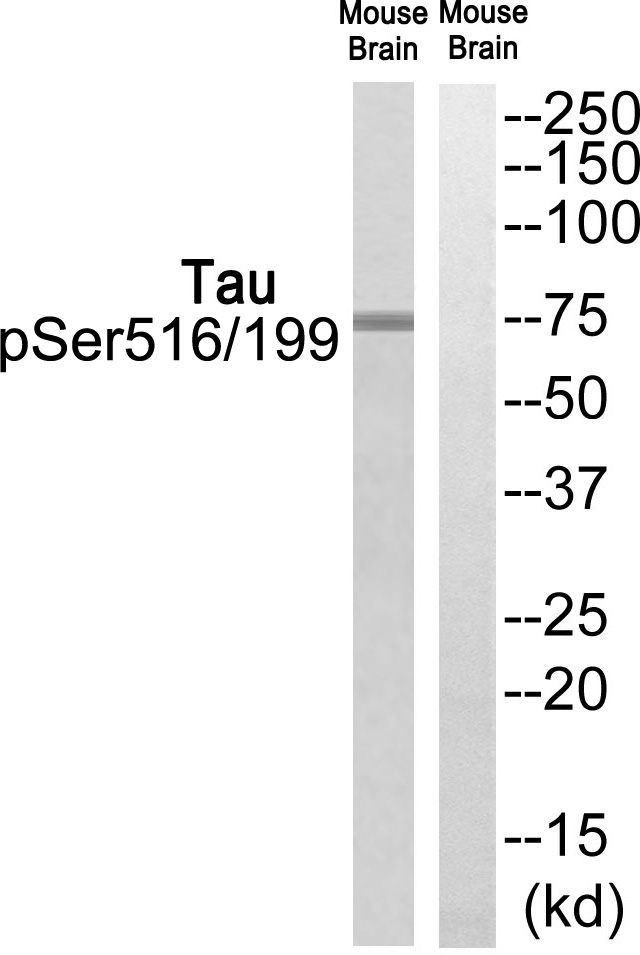Product Detail
Product NameTau (Phospho-Ser516/199) Antibody
Host SpeciesRabbit
ClonalityPolyclonal
PurificationAntibodies were produced by immunizing rabbits with synthetic phosphopeptide and KLH conjugates. Antibodies were purified by affinity-chromatography using epitope-specific phosphopeptide. Non-phospho specific antibodies were removed by chromatogramphy using non-phosphopeptide.
ApplicationsWB
Species ReactivityHu Ms Rt
SpecificityThe antibody detects endogenous levels of Tau only when phosphorylated at serine 516/199.
Immunogen Typepeptide
Immunogen DescPeptide sequence around phosphorylation site of serine 516/199 (Y-S-S(p)-P-G) derived from Human Tau.
Target NameTau
ConjugateUnconjugated
Other NamesMAPT; Microtubule-associated protein tau; MTBT1; Neurofibrillary tangle protein; Paired helical filament-tau; PHF-tau
Accession NoSwiss-Prot#:P10636;
NCBI Gene#:4137
Uniprot
P10636
Gene ID
4137;
Sdspage MW74kd
Concentration1.0mg/ml
FormulationRabbit IgG in phosphate buffered saline (without Mg2+ and Ca2+), pH 7.4, 150mM NaCl, 0.02% sodium azide and 50% glycerol.
StorageStore at -20˚C
Application Details
Western blotting: 1:500~1:3000
Western blot analysis of extracts from Mouse brain cells, using Tau (Phospho-Ser516/199) antibody #12123. The lane on the right is treated with the synthesized peptide.
Promotes microtubule assembly and stability, and might be involved in the establishment and maintenance of neuronal polarity. The C-terminus binds axonal microtubules while the N-terminus binds neural plasma membrane components, suggesting that tau functions as a linker protein between both. Axonal polarity is predetermined by TAU/MAPT localization (in the neuronal cell) in the domain of the cell body defined by the centrosome. The short isoforms allow plasticity of the cytoskeleton whereas the longer isoforms may preferentially play a role in its stabilization.
If you have published an article using product 12123, please notify us so that we can cite your literature.
et al,NeurotrophIn receptor p75 mediates amyloid β-Induced tau pathology. In Neurobiol Dis on 2019 Dec by Shen LL, Li WW, et al..PMID:31394202
, (2019),
PMID:
31394202
et al,Capsaicin consumption reduces brain amyloid-beta generation and attenuates Alzheimer's disease-type pathology and cognitive deficits in APP/PS1 mice. In Transl Psychiatry on 2020 Jul 13 by Jun Wang, Bin-Lu Sun,et al..PMID:32661266
, (2020),
PMID:
32661266
et al,Improving Blood Monocyte Energy Metabolism Enhances Its Ability to Phagocytose Amyloid-β and Prevents Alzheimer's Disease-Type Pathology and Cognitive Deficits
, (2023),
PMID:
37316674



 Yes
Yes



